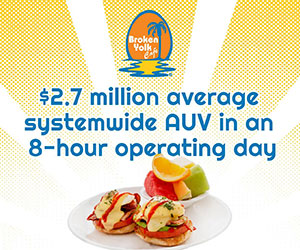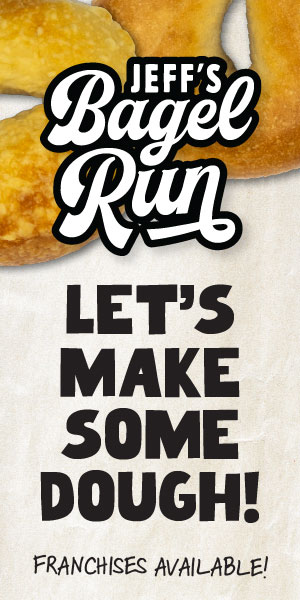Cash vs. Accrual: Is your accounting method limiting your expansion potential?

For multi-unit service operators scaling from three to 10-plus locations, the choice between cash and accrual accounting is a strategic decision that determines whether you’ll secure expansion financing, maximize your exit valuation, or hit an invisible growth ceiling.
The difference
With cash-based accounting, transactions are recorded when money changes hands: revenue when received and expenses when paid. Accrual accounting matches revenues with expenses in the periods they occur, regardless of payment timing. While both methods often show identical results for simple service businesses with immediate payments, strategic implications can diverge dramatically as you scale.
Cash accounting
Cash accounting is adequate in five ways:
1. Business structure and scale
- Single-owner/small owner-operator where decisions are driven by daily cash in the bank
- Low-equipment needs and facility leases with no complex terms or tenant improvements
- Businesses not seeking investors, financing, or franchising
2. Revenue and payment structure
- Service rendered when paid with limited credit/billing arrangements and no significant accounts receivable
- Simple pricing models with no complex packages or memberships
- Minimal deferred revenue from prepaid services or contracts
3. Operational factors
- Service-based businesses with short-term projects and low or no inventory
- Standardized service offerings across all locations
- Low working capital transfers between locations
4. Growth and financing strategy
- Organic growth funded by cash flow, not external financing
- Family business model with internal decision-making and no plans to take on partners
- Self-funded expansion less than $350,000 per new location
5. Management and administrative preferences
- Owner comfort level with cash-based decision-making and limited accounting staff
- Focus on operational metrics, not financial analysis
- Preference for simplicity in daily financial management
Cash accounting is adequate if payments are immediate, inventory is minimal, and the owner is often the primary operator. Service providers, small professional practices, gig economy contractors, food trucks, and small rental properties share the same simplicity with immediate cash flow and owner-operator focus.
Multi-unit dilemma
If cash accounting works so well for small service businesses, why do multi-unit service operators eventually switch to accrual?
The same characteristics that make cash accounting perfect in the early years often become the invisible ceiling that caps your expansion potential. Most multi-unit operators can continue using cash accounting successfully if locations maintain immediate payment, no receivables, minimal equipment purchases, and standardized lease terms. However, successful expansion typically introduces complexities that create material timing differences and intercompany transfers that require accrual accounting.
Complexity
Competitive pressure drives operators to add prepaid packages, seasonal services, or extended service agreements. A tutoring center selling $50,000 in annual packages in December shows inflated December cash profits while understating January-November performance.
Multiple locations require significant equipment purchases, build-outs, and technology systems. A $200,000 equipment purchase hits cash accounting immediately but generates revenue for five or more years, distorting unit economics crucial for expansion decisions.
Commercial clients, insurance billing, or B2B accounts require 30 to 60-day payment terms, creating receivables that cash accounting overlooks until they are collected.
The cash and the accrual approaches show completely different expansion economics. Franchise development requires FDD compliance with audited GAAP statements. Private lenders and investor partnerships typically require accrual reporting for serious expansion capital.
Your cash method is failing if:
- Comparing location performance becomes impossible to measure due to timing differences.
- Monthly cash swings don’t match business activity.
- Expansion decisions are based on gut feel rather than unit economics data.
- Lenders ask clarifying questions about your real profitability.
Making the transition
When you’ve determined accrual is necessary, follow this process:
- Engage a CPA experienced in multi-unit service businesses.
- File Form 3115 Application for Change in Accounting Method with the IRS.
- Allow 90 to 120 days for complete system transition and staff training.
- Budget $15,000 to $30,000 for initial setup costs plus $3,000 to $5,000 monthly ongoing.
Bottom Line
Make the shift before it’s needed. Cash works for small, simple, service-based businesses where daily cash flow equals decision-making. Accrual accounting may be required when scaling past three units with service packages, seeking investor financing or large bank loans, or preparing to franchise.
Cash accounting gets you started. Accrual accounting gets you scalable, bankable, and valuable. Proactivity is key. Plan your transition 12 to 18 months before external requirements force the change.
Larry Layton, CFE, is a member of the Profit Soup team. His insights, gained as a franchise operations executive, business coach, and business owner, bring new depth to the team. Contact him at 714-309-3773 or larry.layton@profitsoup.com.
Share this Feature
Recommended Reading:
| ADVERTISE | SPONSORED CONTENT |
FRANCHISE TOPICS
- Multi-Unit Franchising
- Get Started in Franchising
- Franchise Growth
- Franchise Operations
- Open New Units
- Franchise Leadership
- Franchise Marketing
- Technology
- Franchise Law
- Franchise Awards
- Franchise Rankings
- Franchise Trends
- Franchise Development
- Featured Franchise Stories
FEATURED IN

Multi-Unit Franchisee Magazine: Issue 4, 2025
| ADVERTISE | SPONSORED CONTENT |

$300,000
$200,000





 The multi-unit franchise opportunities listed above are not related to or endorsed by Multi-Unit Franchisee or Franchise Update Media Group. We are not engaged in, supporting, or endorsing any specific franchise, business opportunity, company or individual. No statement in this site is to be construed as a recommendation. We encourage prospective franchise buyers to perform extensive due diligence when considering a franchise opportunity.
The multi-unit franchise opportunities listed above are not related to or endorsed by Multi-Unit Franchisee or Franchise Update Media Group. We are not engaged in, supporting, or endorsing any specific franchise, business opportunity, company or individual. No statement in this site is to be construed as a recommendation. We encourage prospective franchise buyers to perform extensive due diligence when considering a franchise opportunity.